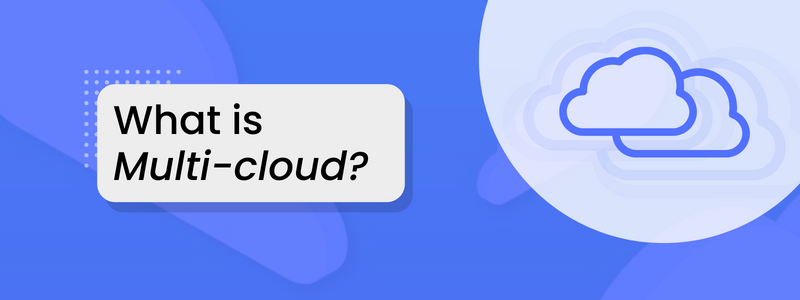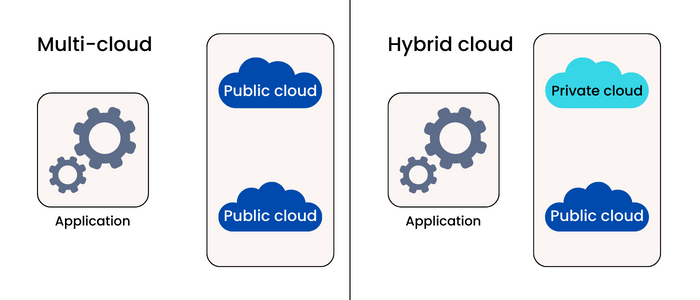What is Multi-cloud? A Simplified explanation

What is Multi-cloud?
A cloud in cloud computing is a group of servers that users of the service can access online. A corporation that provides cloud services, or a cloud provider, usually oversees each cloud.
A cloud that multiple customers share is referred to as public.
A company may use two or more cloud computing platforms as part of a multi-cloud strategy to accomplish a variety of objectives.
To get the most out of each distinct service, organizations that don’t want to rely on a single cloud vendor may decide to leverage resources from numerous different providers. Software as a service (SaaS), platform as a service (PaaS), and infrastructure as a service (IaaS) models may all be included in a multi-cloud solution. The adoption of various private cloud and public cloud solutions is another possibility. The word is typically used by IT experts to refer to a strategy that makes use of numerous public cloud services.
Differentiation between Multi-cloud and hybrid cloud?
Although a multi-cloud and a hybrid cloud can both be used interchangeably, both phrases refer to two different ideas.
The term “hybrid cloud” refers to the blending of two or more different types of infrastructure, including at least one public cloud and either a private cloud, an on-premises data center, or both. Multi-cloud refers to the deployment of many public clouds; a private cloud is not always included, though it may be.
Hybrid environments may be used in multi-cloud deployments, although more than one public cloud provider is required. The plan could lessen the requirement for cloud migration because some data could stay on the company’s servers. A company may decide to keep customer data on-site while utilizing two different SaaS and IaaS providers. Because some cloud environments can be customized for particular use cases, IT stakeholders may need to choose separate suppliers for distinct business tasks.

Pros of Multi-cloud
The main benefit of multi-cloud for businesses is that it avoids “vendor lock-in,” which can lead to issues with performance, a lack of options, or extra costs when just one cloud vendor is used. A multi-cloud strategy provides businesses with
- The freedom to select cloud services from several cloud providers in accordance with a combination of pricing, performance, security, and compliance needs, as well as the business’s preferred location
- Having the ability to quickly embrace “best-of-breed” technologies from any vendor when they become available or are needed, as opposed to forcing customers to use the offerings or features that a single vendor is currently providing
- Potential cost savings: A company is free to choose the most economical services from various suppliers if it doesn’t commit to using just one cloud vendor for all of its infrastructure requirements.
Cons of Multi-cloud
- Greater attack surface: Vulnerabilities are more likely to exist when there are more software and hardware components combined.
- Performance and dependability: It might be challenging to balance loads across various clouds, particularly if the data centers are located in remote areas.
- The complexity of management: Using many providers, each with their own procedures and technologies, is required for a multi-cloud deployment. In addition, with data stored and operations running across various clouds, it becomes more difficult to have total visibility into the technology stack.
- Latency: Depending on how closely the clouds are connected, how far apart the data centers are physically, and how frequently different clouds must interact, latency may be introduced if services in various clouds must communicate with one another to satisfy user requests.
Solution by F60 Host
By forming alliances with cloud service providers like Jumpcloud, F60 Host enables businesses to build reliable, simple-to-manage cloud architectures. With Secure directory services.
Businesses may use F60 Host to control the performance and security of their cloud deployments from a single dashboard. With Secure directory services, SSO and user lifecycle management, and more.



